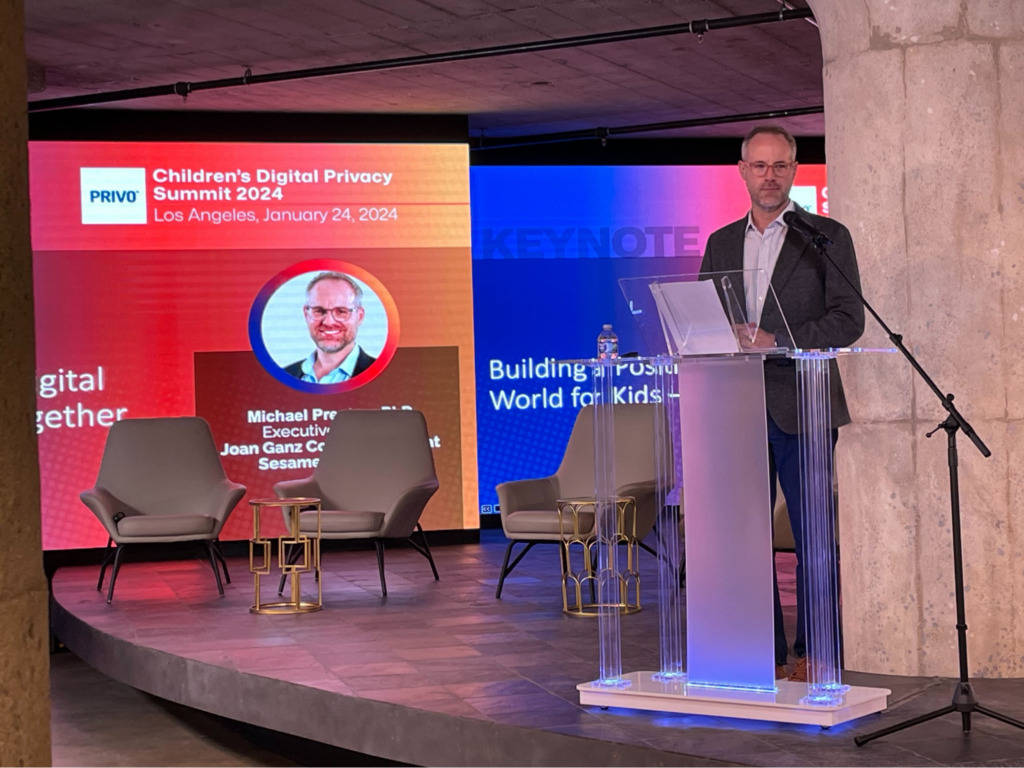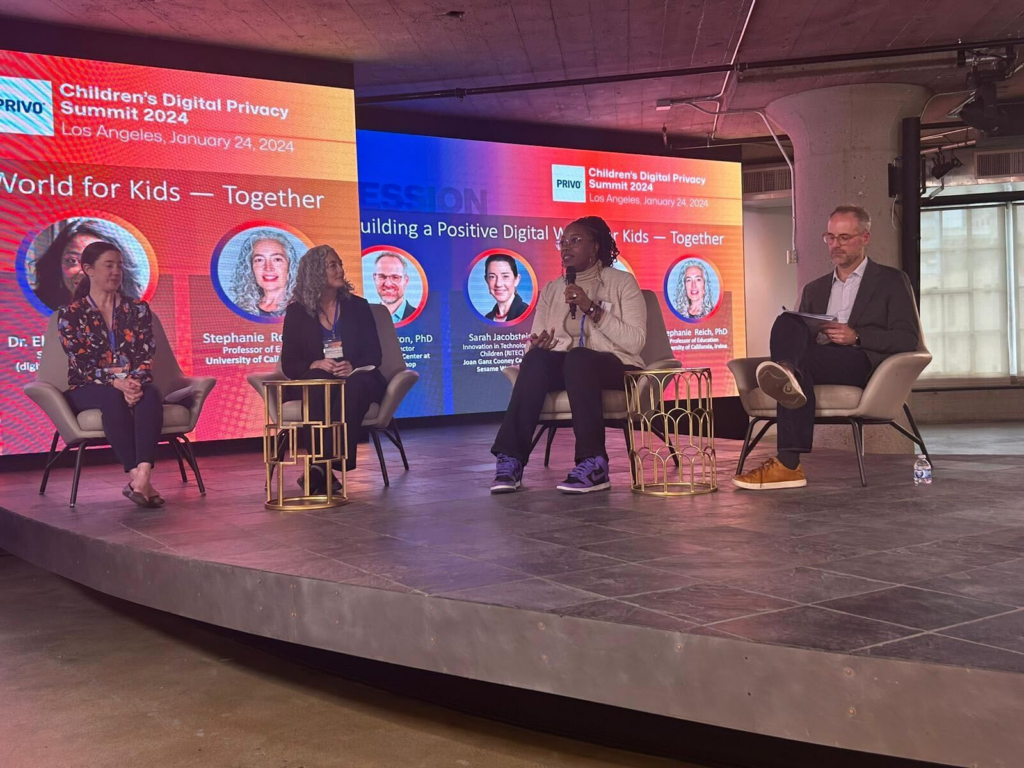The Cooney Center was honored to be invited to PRIVO’s inaugural Children’s Digital Privacy Summit in Los Angeles in January. We don’t have the opportunity to connect with those in the privacy and compliance world as much as we would like, so it was extremely valuable to learn about ins and outs of the challenging environment that companies are navigating. We were glad to be able to offer an aspirational reminder to attendees of what a positive digital world for kids might look like, and why it is so important that we all work together to build one.
Michael Preston kicked things off with a keynote outlining why businesses and policymakers should help to create digital experiences that prioritize children’s well-being, and why kids should be a part of creating those experiences: “Mostly our conversation today has been about kids as the downstream recipients of decisions made by adults on their behalf,” Michael pointed out to the audience. “One challenge that we devote a lot of attention to is that kids’ unique perspectives are mostly ignored in the development of the products they will use.”

Michael then moderated a session in which I participated with Dr. Elizabeth Milovidov (Sr. Corporate Counsel, digital games, metaverse and child safety, the LEGO Group) and Stephanie Reich (Professor of Education, University of California, Irvine) to explore what “good looks like” and how we can design better digital experiences leveraging the RITEC concept of designing for children’s well-being.

I explained that the RITEC initiative invited kids around the world to share how they defined well-being in their own lives. Some of their answers were different from what adults might say. For example, safety meant “feeling safe” and that they belonged and were welcomed when they entered a digital space.
Elizabeth shared how the LEGO Group approaches working designing for children’s well-being into the company’s policies and practices, including educating employees and implementing design requirements in guidance and contracts with partners.
And Stephanie described how design choices really do have an impact on children. She shared examples from children in her research and how they felt happy, empowered, and competent when digital experiences offered open-ended play that allowed them to make decisions and control their own journey within a game.
After our sessions, many event attendees told us that they felt energized by our message. In the day-to-day struggle to ensure that a company’s digital products for children comply with safety and privacy requirements, it is good to hear a reminder of who these products are being built for, why we must build them well, and that each of us has a part to play in creating the digital world that we want for children.
Video from Michael’s keynote and the panel, Building a Positive Digital World for Kids—Together, can be found on the PRIVO website.

